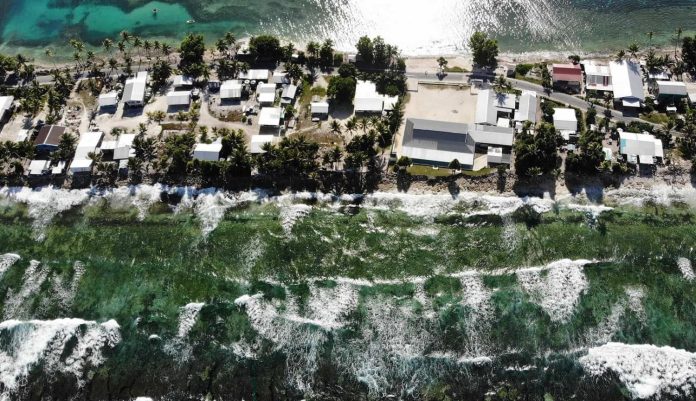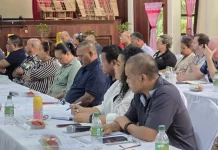A comprehensive report released ahead of the Thirty-sixth meeting of the Green Climate Fund (GCF) Board last week, sheds new light on challenges faced by Pacific Island Countries (PICs) accessing global climate finance funds. Pacific nations have long been vocal on the challenges of accessing support from the global funding entity.
The report titled, titled “What GCF do we want in the Pacific? Practical recommendations for reform and capacity support,” examines key issues hindering access to climate finance and proposes practical recommendations for reform.
“We need a flexible GCF that is more responsive to the needs of the Pacific. This paper proposes ways that the GCF can meet our needs for adequate, predictable and timely access to climate finance, “said the Pacific Islands Forum’s Director for Programmes and Initiatives, Zarak Khan.
He says the release of this report comes at a crucial time as the GCF prepares its new Strategic Plan for 2024-2027 and negotiates its second financial replenishment. The findings and recommendations presented in the report aim to contribute to the GCF’s continuous improvement efforts, ensuring that climate finance is accessible, responsive, and impactful for the Pacific region.
“As one of the largest contributor to the GCF, the UK is listening carefully to PICs challenges, including GCF access issues in the region, and highlighting these, for action at the highest level,” said the British High Commissioner to Fiji, Dr Brian Jones.
The report addresses critical areas such as accreditation and support, the Simplified Approval Process (SAP), portfolio and region-specific programming, project implementation and local currency financing, GCF literacy and engagement in the Pacific, capacity, and institutional capability, GCF guidance and policies, stability, and continuity within the GCF Secretariat, data limitations, and capacity building.
One of the major challenges identified in the report is the complex accreditation requirements imposed by the GCF, which create a cumbersome process for PICs. The time investment needed to understand GCF policies and requirements, coupled with high fees and the need to develop new policies, poses significant barriers for accessing climate finance. The report recommends streamlining the accreditation process and providing clearer guidance on utilising existing policies to ease the burden on countries seeking accreditation.
The report emphasises the urgency of addressing the climate finance needs of the Pacific and recommends further research and investigations into GCF affairs across other regions. It calls on the GCF to fulfill its obligation of providing increased climate finance to meet the specific needs of the Pacific, enabling the region to tackle climate change and build resilience effectively.
This report is jointly developed by the United Nations Development Programme (UNDP), the Pacific Islands Forum (PIF), and the UK Foreign, Commonwealth & Development Office (FCDO), highlighting the urgent need for reforms to improve the GCF’s effectiveness in addressing the climate crisis in the Pacific region.
SOURCE:PIFS/PACNEWS













